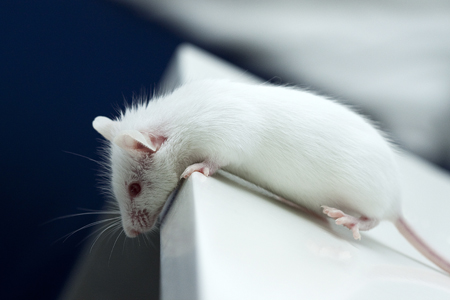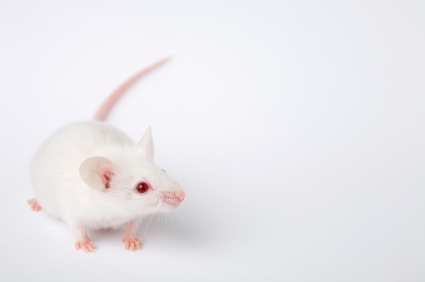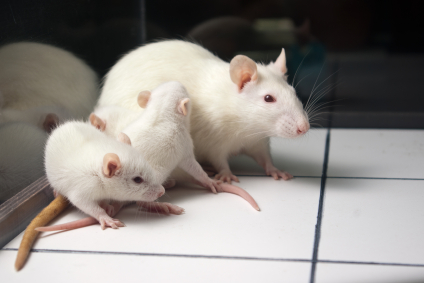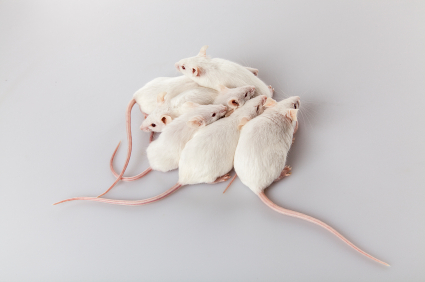Heart Attacks, Surgery Lead to Memory Impairment in Mice
Events like surgery or heart attacks that cause inflammation can lead to cognitive deficits or depression for months or years afterward, even though the direct effects of inflammation wear off within weeks. In a recent study, Natalie Tronson and colleagues subjected mice to surgical heart attack, sham surgery, or no operation, and observed how well they absorbed new learning eight weeks later.
Both male and female mice had impairments in fear learning following surgical heart attacks. Female mice that received sham surgery also showed deficits in fear learning. When the researchers dissected the mice, analyzing their blood and hippocampi after the eight-week period, inflammatory cytokine measures had normalized as expected, but the researchers found other abnormalities.
Intracellular signaling was dysregulated, and there had been epigenetic changes in cells of the hippocampus. (Epigenetic changes refer to those that change the structure of DNA, such as how tightly it is wound, rather than its sequence. For example, the addition of acetyl groups to DNA or the histones around which it is wound.) The researchers observed increased histone acetylation and phospho-acetylation following the heart attacks.
The researchers concluded that a systemic inflammatory event, such as heart attack or surgery, can cause long-term memory impairment and changes in mood through epigenetic mechanisms. They compared the findings to those of other studies in which normal aging and memory-impairing treatments such as chemotherapy had also been associated with increases in histone acetylation or decreases in histone deacetylase activity.
Information from Environmental Experiences Can Be Passed on in Dad’s Sperm
Contrary to all common sense, researcher Brian Dias showed that when rats that were future fathers learned to associate an odor with a shock, this learning could be passed on to the next generation when the father mated with a female rat that had not learned the same association.
It turns out that the next generation of rat pups shows increased behavioral reactivity to the odor in a process different from the fear conditioning they might exhibit if they learned to avoid the odor through their own experiences.
Presumably, the pup is somehow programmed through an epigenetic modification of the father’s sperm to grow more neurons from the nose to the olfactory bulb that specifically react to the odor its father feared, and not to other odors. Miraculously, when the second generation pup grows up and fathers a third generation pup, the new pup also shows increased behavioral sensitivity to that specific odor. How the odor information from the first generation is represented in the fathers’ sperm and passed on to their descendants is still a complete mystery.
There are also new data that a father rat fed a diet deficient in folic acid (vitamin B9) will sire offspring with more congenital malformations. Additionally, an obese father rat fed a diet that includes extra fat calories will sire pups that become obese as adults even when fed a normal milk diet from a svelte mother before weaning and then fed a normal diet after weaning.
Mothers’ behavior usually gets most of the credit and/or blame for her children’s behavior, but now it looks like fathers’ diet or behavior (even before they have children) may have lasting consequences for their offspring.
Conditioned Fear Can Be Transmitted Transgenerationally in Rodents
Scientists often use fear conditioning to study rodents’ learning and behavior. If a particular stimulus (such as a light, a sound, or an odor) is presented paired with the delivery of a mild shock, the animal begins to associate the stimulus with the shock and will freeze when it is presented and avoid the stimulus.
New research shows that if a pregnant rat (known as a dam) goes through fear conditioning that pairs an odor with a shock, the rat’s offspring will also avoid that odor into adolescence. Even if the pups are raised by a different mother who never went through the fear conditioning, they still avoid the odor into adolescence, showing that they do not learn the behavior through watching their mother.
The conditioning is specific to the particular odor, such that a different odor not used in the fear conditioning does not evoke a heightened reaction from the pups. It appears that the pup learns the fear through chemical signals, such as alarm pheromones that can pass through the placenta.
Rats Learn Fear Conditioning From One Another
Rats who are taught to associate a light with an electric shock learn to avoid the light. This process is known as conditioned fear. New research shows that if one rat watches another rat go through fear conditioning, the observing rat will also show the effects of fear conditioning. It will also avoid the light, but only if it had previous experience with fear conditioning. It appears that rats have the ability to learn from other rats’ painful experiences.





